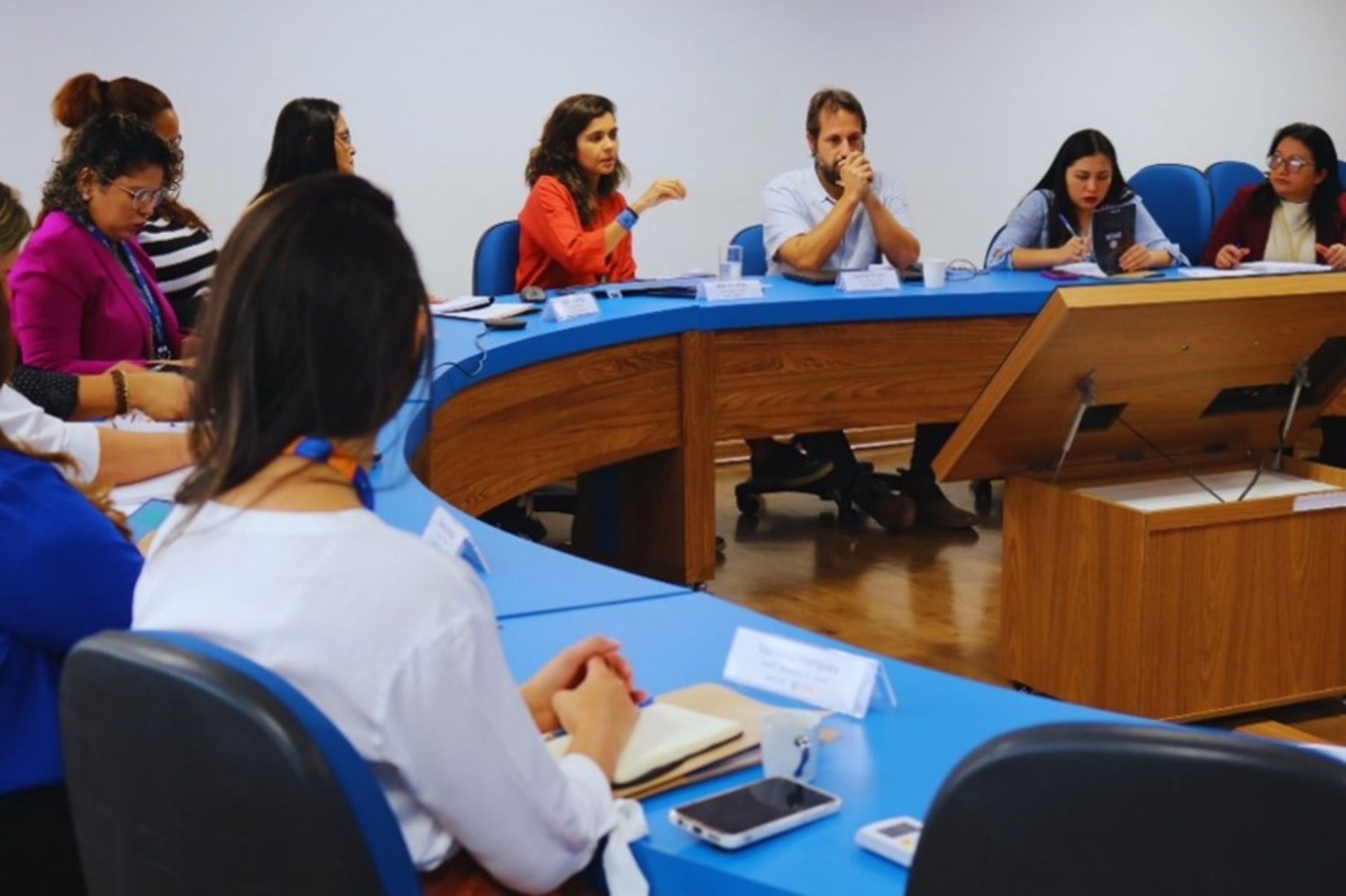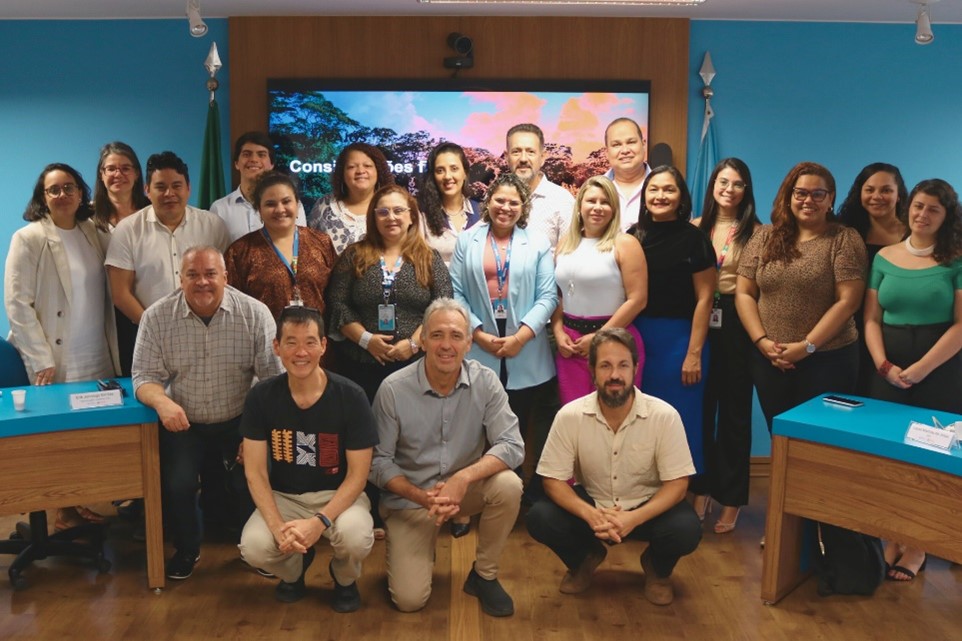
Brasilia (DF), 4 June 2024 – On 23 and 24 May, the United Nations Office on Drugs and Crime (UNODC) in Brazil hosted authorities and health and indigenous health experts to discuss a comprehensive health care line for people affected by mercury used in gold mining in the Tapajós River basin in Pará.
The activity is part of the Tapajós protection axis, a UNODC project to reduce human trafficking in gold mines, and is based on UNODC research in the region that identified health problems caused by mining activities among workers and communities - including indigenous people - affected by illegal mining.
The technical meeting, held in Brasilia (DF) and supported by the Secretariat for Indigenous Health (SESAI) of the Ministry of Health, discussed the health services available and the processes needed to provide diagnosis, preventive measures, specialised treatment and rehabilitation strategies for victims of mercury poisoning.
Present at the UNODC office were representatives of SESAI and the Secretariats of Health and Environmental Surveillance (SVSA) and Specialised Health Care (SAES) of the Ministry of Health; the Secretariats of Public Health (SEPAS) and Indigenous Peoples (SEPI) of the Government of Pará; the Rio Tapajós Special Indigenous Health District (DSEI); the WWF; researchers from Fiocruz, the Evandro Chagas Institute, the Iepé Institute, the Federal University of Western Pará (UFOPA) and the Federal University of Pará (UFPA); and medical professionals working directly with the problem in the region.
“This meeting is important because it provides a rare inter-institutional space for dialogue and coordination between different secretariats of the Federal Ministry of Health and representatives from the State of Pará and the communities most affected by mercury poisoning, as well as specialists who are researching and tackling the problem on the ground,' said Lucinha Tremembé, Director of SESAI's Department of Primary Indigenous Health Care (DAPSI), at the opening of the event.
After an introduction providing an overview of the impact of mercury in the Tapajós basin, the two-day programme was divided into thematic sessions covering clinical assessment, physical examination, laboratory diagnosis, surveillance, specialised care and monitoring.

Participants developed a technical and methodological proposal to discuss terminology, protocols for case identification, clinical and laboratory diagnosis, workflows and other procedures needed to establish a specific line of care for comprehensive healthcare for people affected by mercury.
The meeting will continue discussions aimed at creating a specialised service, linked to the Unified Health System (SUS), to deal with the effects of mercury poisoning in the Tapajós River basin. The substance, used in gold mining, contaminates rivers and fish and has serious health consequences for the Munduruku indigenous people, riverbank dwellers and residents of communities such as Itaituba and Jacareacanga.
A first meeting organised by UNODC Brazil was held in Santarém, the main city in the Tapajós river basin, in March 2024.
With a mandate to provide technical assistance to Member States to prevent and combat crimes related to drugs, illicit trafficking and transnational organized crime, as well as their convergence with environmental crimes (ECOSOC resolution 2019/23), UNODC, in partnership with the Ministry of Environment and Climate Change, hosted the International Conference on Mercury Trafficking in October 20/23, which brought together representatives of the Federal Government, security forces, environmental enforcement agencies and experts from Brazil and abroad to discuss emerging trends and challenges related to the illicit trade in mercury in the country. In this context, UNODC also developed a Response Framework on Illegal Mining and Illicit Trafficking in Precious Metals to enhance the global response to the multidimensional challenges of this issue.
Tapajós Project – Tapajós is a project implemented since 2021 by UNODC Brazil, within the scope of its mandate to assist countries in the application of the UN Protocol on Trafficking in Persons, with funding from the United States Department of State's Office to Monitor and Combat Trafficking in Persons (JTIP/PEMS).
Phase I of the project (2021-23) aimed to develop a better understanding of the prevalence of human trafficking and slave labour in the gold mining sector in the Tapajós River basin. Phase II (2023-25) will implement evidence-based interventions - developed with local partners - to reduce and prevent these crimes in the region, including the promotion of alternative development initiatives.